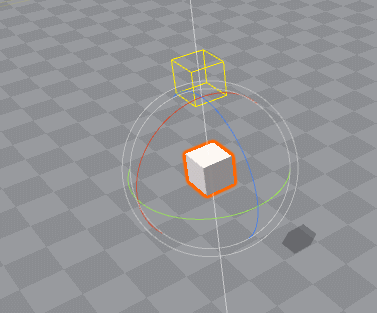Hey there
There is no concept of local space. It sometimes helps to work in 'local space', then convert the coordinate to 'world space' for later use. For example, if I want to get a position that is 2 units to the left, and 2 units up, all relative to my object, I could do this:
var localVec = transform.localPosition + Vector3.left*2 + Vector3.up*3;
return transform.TransformPoint(localVec );
This will give me the world position of the coordinate that is 2x left + 2x up of the object in that objects local space.
It seems like you guys ran in to this issue also - there is a 'center' offset for TSColliders. The Unity Collider offsets the collider in local space, which makes sense. but the TSCollider offsets in world space, which doesn't make much sense. Here is TSCollider vs Collider, Center = (0,3,0).
![]()
There is no concept of local space. It sometimes helps to work in 'local space', then convert the coordinate to 'world space' for later use. For example, if I want to get a position that is 2 units to the left, and 2 units up, all relative to my object, I could do this:
var localVec = transform.localPosition + Vector3.left*2 + Vector3.up*3;
return transform.TransformPoint(localVec );
This will give me the world position of the coordinate that is 2x left + 2x up of the object in that objects local space.
It seems like you guys ran in to this issue also - there is a 'center' offset for TSColliders. The Unity Collider offsets the collider in local space, which makes sense. but the TSCollider offsets in world space, which doesn't make much sense. Here is TSCollider vs Collider, Center = (0,3,0).
